Mastering Emotional Intelligence with Challenging Personalities
Unlock the skills to understand and handle arrogant personalities with empathy and tact.

The Danger of Overconfidence in Business
In the fast-paced world of real estate and entrepreneurship, you’re bound to meet a variety of personalities. Some individuals may come across as overly confident or even arrogant, presenting themselves as more knowledgeable than they really are.
This can be particularly challenging when their overconfidence isn’t matched by actual intellectual capacity. We’ve all encountered people who think they know it all, and navigating these interactions requires emotional intelligence.
For estate agents, entrepreneurs, and newcomers to the industry, understanding how to handle these individuals is crucial.
In this article, we’ll explore how to recognize key traits that may indicate a mismatch between confidence and ability, and, drawing inspiration from experts like Andre Swart, how to use emotional intelligence to effectively manage these situations without creating unnecessary conflict.
Recognizing Cognitive Rigidity

The Dangers of Black-and-White Thinking
Cognitive rigidity is one of the most common traits of individuals who struggle with intelligence but overestimate their abilities.
They often see the world in black-and-white terms, rejecting any new information that contradicts their beliefs.
You might encounter this in a colleague or client who refuses to adapt their strategy, even when presented with evidence that suggests a change is needed.
Why It Matters:
In business, adaptability is key. The ability to analyze new data and adjust accordingly is a mark of intelligence. Working with someone who rigidly clings to outdated methods can hinder progress.
In real estate, for example, this can manifest as an agent who sticks to old sales techniques despite shifting market trends.
How to Handle It:
Stay patient, and gently introduce new ideas over time. Frame your suggestions in a way that feels non-threatening, perhaps using phrases like, “Have you considered…?” or “I’ve noticed a trend that might be worth exploring.”
Overconfidence and the Dunning-Kruger Effect
Why Some People Think They Know More Than They Do
The Dunning-Kruger effect describes how individuals with limited knowledge tend to overestimate their abilities.
You may encounter this in someone who speaks with great authority on a subject they barely understand, often dismissing the input of true experts.
This behavior can be frustrating, especially in an industry that requires expertise and constant learning, like real estate.
Example:
Imagine a newcomer to the real estate industry arguing with seasoned agents about market dynamics, based on a few blog articles they’ve read online.
They may not have the depth of understanding needed to make informed decisions, but their confidence blinds them to their own limitations.
How to Handle It:
Ask open-ended questions that prompt deeper thinking. For instance, “That’s an interesting point—what data did you use to reach that conclusion?”
This helps guide the conversation toward a more thoughtful exchange without directly challenging their ego.
Impulsive Behavior and Poor Decision-Making

The Cost of Acting Without Thinking
Impulsivity is another trait often associated with lower intelligence. Impulsive individuals make decisions quickly, without considering long-term consequences.
In business, this can be disastrous, leading to poor financial choices or hasty decisions that affect the entire team.
Example:
An estate agent might impulsively slash property prices to make a quick sale, without analyzing the long-term impact on their portfolio or brand reputation. This shortsightedness can lead to bigger problems down the line.
How to Handle It:
Provide calm, rational feedback. Highlight the benefits of a more measured approach by saying, “I think we can get a better result if we take some time to consider all our options.”
By guiding them toward thoughtful decision-making, you’ll encourage more responsible actions.
Quick to Anger
Behavior: Reacts emotionally to criticism or differing opinions.
Impact: Limits constructive dialogue and fosters conflict due to fragile self-esteem.
Example: A coworker becomes defensive and lashes out when questioned about their decision-making.
Why It Matters: People who are quick to anger often struggle with feedback, viewing it as a personal attack rather than an opportunity to grow.
This emotional reaction can hinder teamwork, create unnecessary tension, and prevent meaningful discussions. Their defensiveness stems from insecurity, and their outbursts can damage relationships within a team.
In environments that require collaboration, this behavior can disrupt productivity and morale.
Lack of Curiosity and Growth Mindset

Why the Willingness to Learn Matters
Another trait of individuals with lower intellectual capacity is a lack of curiosity. These individuals are often satisfied with surface-level understanding and are unwilling to dive deeper into complex topics.
In industries like real estate and entrepreneurship, where constant learning is essential, this mindset can prevent personal and professional growth.
Example:
You might find a colleague who avoids reading industry updates or asking follow-up questions during meetings. They may be content with their limited knowledge and resist efforts to expand their understanding.
How to Handle It:
Encourage a culture of learning by leading by example. Share new articles, insights, or industry reports and frame them as opportunities for growth.
Say something like, “I just read this piece on market trends—what do you think about applying these ideas to our strategy?”
Social Intelligence and Misreading Cues
The Importance of Emotional Awareness
Low social intelligence can manifest as difficulty in understanding social cues, sarcasm, or even the emotional state of others.
These individuals might fail to pick up on subtle signals, leading to awkward or inappropriate interactions. In business, where relationships are key, this can damage client or team dynamics.
Example:
Imagine a team meeting where a colleague misinterprets a light-hearted joke and reacts defensively, creating tension. Or, they may fail to grasp the importance of a client’s unspoken needs, leading to missed opportunities.
How to Handle It:
Model empathetic behavior by being clear and direct in your communication. Help them understand the social context by gently explaining, “I think the client was hoping for a bit more flexibility—perhaps we could explore some alternative solutions.”
Deflecting Blame and Avoiding Responsibility

Ownership and Accountability in Professional Growth
Individuals who lack intellectual capacity may struggle to take ownership of their mistakes, often blaming external factors or other people.
This can create friction in teams and erode trust, especially in collaborative environments like real estate agencies.
Example:
An agent might blame their poor sales performance on the market or their team, rather than reflecting on their own approach or strategies. This behavior prevents growth and creates a toxic work environment.
How to Handle It:
Offer constructive feedback by focusing on the situation, not the person. For instance, say, “I noticed that last month’s performance didn’t meet expectations—let’s brainstorm some new strategies to tackle this.” This encourages accountability without shaming the individual.
Navigating Difficult Interactions with Emotional Intelligence
Understanding the traits of individuals who may not possess the intelligence they believe they have is essential in navigating professional relationships.
Traits like cognitive rigidity, impulsive behavior, and lack of social intelligence can be challenging to work with, but by using emotional intelligence, you can turn these interactions into opportunities for growth.
Whether you’re an entrepreneur, an estate agent, or a newcomer to the industry, recognizing these behaviors and responding with empathy and tact will help you maintain positive relationships and promote a more productive work environment.
By staying calm, asking the right questions, and fostering a culture of learning, you can help guide these individuals toward better decision-making while protecting your own professional path.
